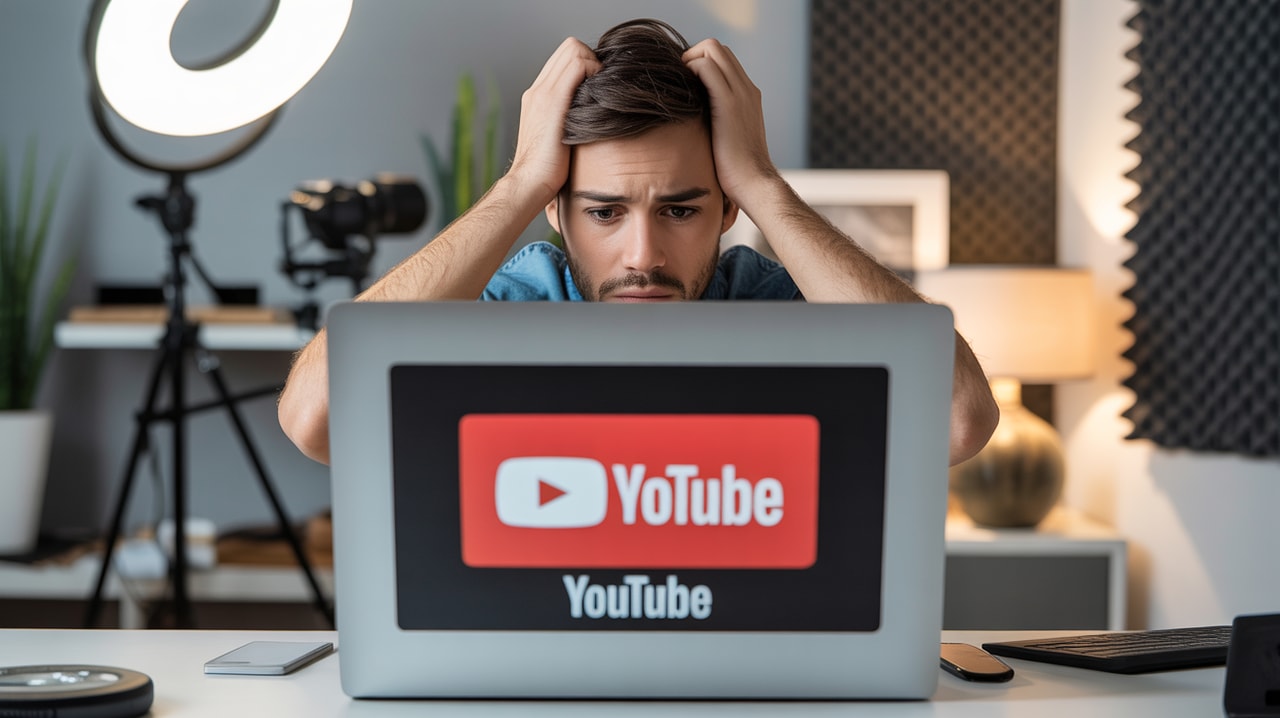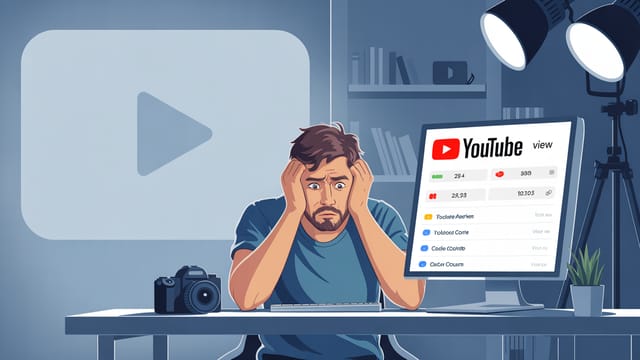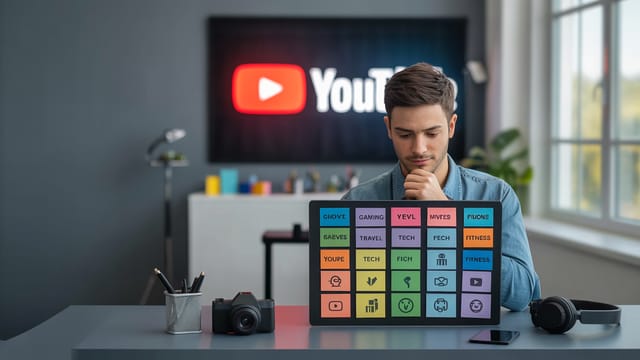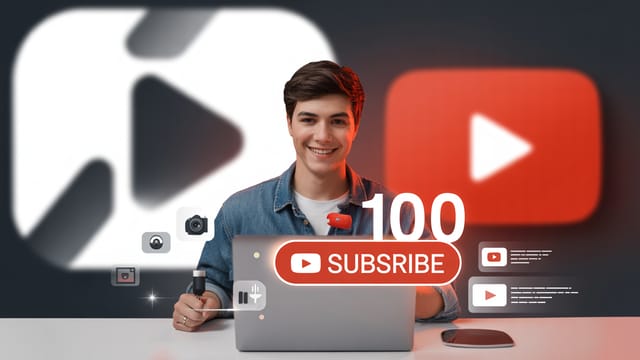
Ready to get your next 10,000 subscribers?
Join thousands of creators who use Subscribr to create faster, better YouTube videos.
My YouTube Content Got Demonetized! What Now? (Recovery Plan)
Receiving a demonetization notice on YouTube can feel like a punch to the gut. You've poured time, effort, and passion into building your channel, and suddenly, your ability to earn through the YouTube Partner Program (YPP) is gone or at risk. It's a frustrating and often confusing experience, especially with YouTube's constantly evolving policies. But don't panic – demonetization doesn't have to be the end of your creator journey.
This guide will walk you through understanding why demonetization happens, how to effectively appeal a decision, strategies for fixing your content if needed, and crucially, how to explore alternative income streams if AdSense isn't an option, either temporarily or long-term. We'll address the uncertainty around YPP eligibility and the challenge of keeping up with policy changes, providing you with a clear plan to navigate this difficult situation.
Understanding YouTube's Monetization Policies and Why Demonetization Happens
YouTube's monetization policies are designed to create a safe and advertiser-friendly environment. Adhering to these guidelines is non-negotiable for joining and remaining in the YPP. Demonetization occurs when YouTube determines that a channel or specific videos violate these policies.
The key policy areas include:
- Community Guidelines: These cover content that is strictly prohibited, such as spam, deceptive practices (like scams or impersonation), sensitive content (including child safety, self-injury, or suicide), violent or dangerous content, cyberbullying, and the promotion of regulated goods (like illegal drugs or firearms).
- Terms of Service: These are the general rules for using YouTube, outlining user and platform rights.
- Copyright: You must only upload content that you have created or have explicit permission to use. Using copyrighted music, video clips, or other material without the necessary rights can lead to strikes or demonetization. While "fair use" exists, it's a complex legal concept and not a guaranteed defense.
- Google AdSense Program Policies: These govern how you interact with ads on your channel. Prohibited activities include clicking on your own ads or encouraging others to click them.
- Advertiser-Friendly Content Guidelines: This is where many demonetization issues arise. Content may receive limited or no ads if it contains inappropriate language, violence, adult themes, shocking content, harmful acts, hate speech, or discusses controversial or sensitive events in a way deemed unsuitable for advertisers.
It's important to note that YouTube's systems, while advanced, can sometimes make mistakes. Additionally, policies can be interpreted differently, and what was acceptable before might not be now. Keeping up-to-date with these frequently evolving policies is a significant pain point for many creators.
How to Appeal a Demonetization Decision
If your channel or a specific video is demonetized and you believe it was a mistake or unfair, appealing the decision is your first step. YouTube typically provides a specific window for appeals, so it's crucial to act quickly.
Here's how to approach the appeal process:
- Understand the Reason: Carefully review the demonetization notification. YouTube usually provides a general reason or points to specific videos. Try to understand exactly which policy you allegedly violated and why.
- Assess Your Content: Honestly evaluate the content in question against the specific policy cited. Is there anything that could be misinterpreted? Did you inadvertently use copyrighted material?
- Prepare Your Evidence: If you believe the decision is incorrect, gather evidence to support your case. This might include:
- Proof of intellectual property ownership if copyright is the issue (e.g., original project files, unedited footage).
- An explanation of the context if your content was flagged for sensitive topics (e.g., discussing a controversial issue for educational purposes).
- Evidence that you followed best practices.
- Submit an Appeal Through YouTube Studio: YouTube provides a direct appeal process within YouTube Studio. Follow the instructions carefully. This often involves submitting a video appeal where you explain your case.
- Create a Clear Video Appeal (If Required): If a video appeal is an option, make it concise and clear. State your channel name and the date of the demonetization notice. Explain why you believe the decision was incorrect, referencing the specific policies and providing your evidence. Be calm, professional, and respectful. Showing your face can help establish your identity as the creator.
Keep in mind that YouTube's automated systems sometimes flag content that was uploaded elsewhere first, mistakenly identifying it as stolen when you are the original creator cross-posting to YouTube. If this is the case, your appeal should clearly demonstrate your ownership and the timeline of creation.
Fixing Your Content After Demonetization
If your appeal is denied or you recognize that your content did indeed violate policies, the next step is to fix the issues. This is essential if you hope to be re-monetized in the future.
- Remove or Edit Violating Content: Identify the specific videos or sections of videos that caused the demonetization. You may need to delete the videos entirely or use YouTube's editor to trim out violating segments.
- Address Channel-Wide Issues: Sometimes, demonetization is not due to a single video but a pattern of content that violates policies. Review your entire channel's content, themes, and practices to ensure they align with YouTube's guidelines.
- Review and Understand Policies Thoroughly: Don't just fix the immediate issue. Take the time to deeply understand YouTube's Community Guidelines and Advertiser-Friendly Guidelines. This is crucial for preventing future problems. Subscribr's channel intelligence and research tools can help you analyze successful channels in your niche to understand content strategies that stay within guidelines.
- Adjust Future Content Strategy: Based on what you learned, adjust your content creation process to avoid similar violations. This might involve being more careful about language, visuals, or topics you cover, or ensuring you have proper permissions for all third-party content.
It takes time to get re-monetized after fixing issues. You'll typically need to reapply to the YPP and meet all eligibility requirements again. Focus on creating policy-compliant content consistently during this period.
Exploring Alternative Income Diversification Strategies (Beyond AdSense)
Demonetization highlights a critical truth for YouTube creators: relying solely on AdSense revenue is risky. Diversifying your income streams provides stability and opens up new opportunities, even if your content is temporarily or permanently demonetized through the YPP.
As shared by experts, building influence is key, as income often follows. Explore these alternative monetization methods:
- Brand Deals and Sponsorships: Partnering with brands is a significant income source for many creators. As your viewership grows, regardless of YPP status, brands will be interested in reaching your audience. Ensure transparency by clearly disclosing sponsored content.
- Affiliate Marketing: Promote products or services you use and recommend by including affiliate links in your video descriptions. You earn a commission on sales made through your unique links. This is a straightforward way to monetize recommendations.
- Patreon or Other Membership Platforms: Offer exclusive content, early access, or special perks to fans who support you through a monthly subscription on platforms like Patreon. This builds a direct relationship with your most dedicated audience and provides a recurring income stream.
- Merchandise: Once you have a loyal following, creating and selling branded merchandise can be a great way to monetize your brand and connect with your audience.
- Online Courses, Digital Products, or Services: Leverage your expertise by creating and selling your own online courses, e-books, guides, or templates. You could also offer coaching or consulting services related to your niche. This allows you to monetize your knowledge directly.
- Direct Donations: Platforms like PayPal or Ko-fi allow viewers to send direct donations to support your work.
Subscribr's platform context emphasizes the importance of income diversification. While AdSense is a common starting point, successful creators build multiple revenue streams to future-proof their channels. Using Subscribr's tools to analyze your audience can help you understand what types of products, services, or exclusive content they would be most interested in supporting.
How to Ensure Your YouTube Content is Eligible for Monetization
Prevention is better than cure. Proactively ensuring your content meets YouTube's guidelines is the best way to avoid demonetization in the first place.
- Know the Guidelines Inside and Out: Regularly review YouTube's Community Guidelines, Terms of Service, and Advertiser-Friendly Guidelines. Policies can change, so stay informed.
- Create Original Content: Focus on creating content that is uniquely yours. Avoid simply re-uploading others' videos or using copyrighted material without proper permission.
- Be Mindful of Sensitive Topics: If your niche involves potentially sensitive or controversial subjects, approach them carefully. Provide context, avoid sensationalism, and ensure your content is educational or documentary in nature rather than gratuitous or harmful.
- Maintain Brand Consistency and Quality: Channels with a clear theme, consistent quality, and engaged audience are generally viewed more favorably.
- Utilize YouTube Studio Analytics: Pay attention to any warnings or notifications in YouTube Studio regarding your content's monetization status.
- Focus on Audience Value: Create content that genuinely provides value to your target audience. Engaged viewers who enjoy your content are less likely to flag it, and high engagement signals positive audience experience to YouTube.
Staying compliant and profitable in 2024 and beyond requires a proactive approach to understanding and adhering to YouTube's policies while simultaneously building a robust, diversified business around your channel. Subscribr's AI Script Writer and Research Assistant can help you brainstorm and plan content ideas that are both engaging for your audience and less likely to fall foul of monetization policies by helping you research topics and structure your videos effectively.
Conclusion
Demonetization is a significant challenge, but it's not the end of your journey as a creator. By understanding the policies, effectively appealing unfair decisions, diligently fixing violating content, and strategically diversifying your income streams beyond AdSense, you can navigate this setback and build a more resilient and sustainable YouTube career. Focus on creating high-quality, original content that provides value to your audience, and stay informed about YouTube's evolving landscape. With a strategic approach and the right tools, you can overcome demonetization and continue to grow your channel and your business.





